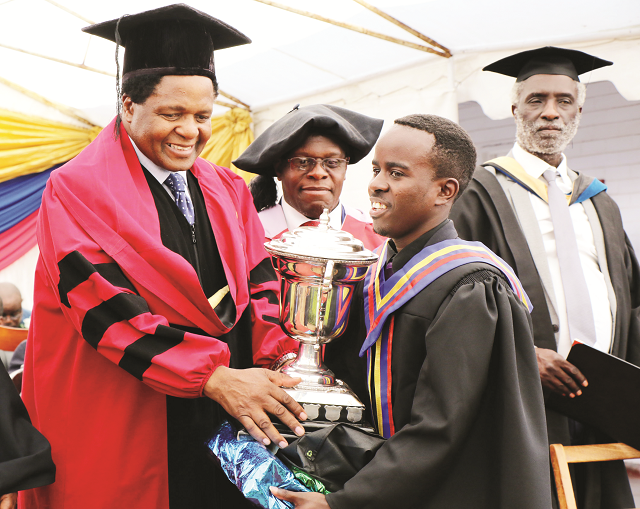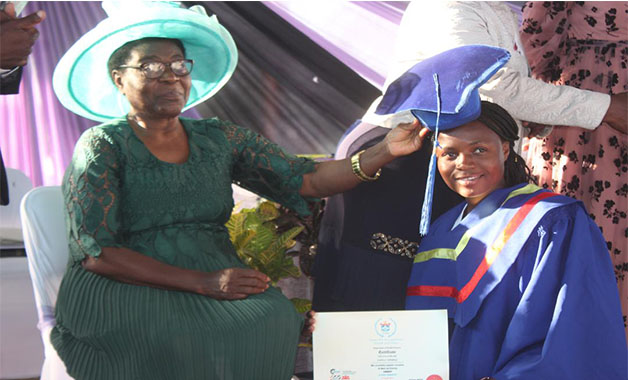‘Teachers have role to play in promoting country’s vision’


The Permanent Secretary in the Ministry of Higher and Tertiary Education, Dr Desire Sibanda, presents prizes to STEM student of the year, Cuthbert Zulu, during a graduation ceremony at Hillside Teachers’ College in Bulawayo yesterday
Auxilia Katongomara, Chronicle Reporter
GOVERNMENT yesterday said teachers have a role to play in promoting the country’s vision to attain middle income status by 2030 through inclusive education.
According to the World Bank, a middle-income economy is one with a gross national income ranging between US$1 005 and US$12 235 per capita and President Mnangagwa has said the country’s economic drive is aimed at achieving that status by 2030.
Guest of honour at the 62nd graduation ceremony at Hillside Teachers’ College, Secretary in the Ministry of Higher and Tertiary Education, Science and Technology Development, Dr Desire Sibanda, said the 2030 vision can only be achieved through an inclusive approach.
“As Zimbabwe strives to progress towards middle income status by 2030, there is need to adopt policies consistent with Sustainable Development Goal 4 on education which aims to ensure inclusive and quality education for all.
“ It is, however, increasingly worrisome that the majority of our institutions have not put in place adequate measures to increase access to differently abled students in our institutions,” said Dr Sibanda.
He said disabled people’s rights had to be respected.
“I must emphasise here that the integration of the disabled in all our institutions is a constitutional issue. It must be understood that Sections 22 and 56 of the Constitution of Zimbabwe enshrine the rights of people with disabilities,” said Dr Sibanda.
He said his Ministry had moved from theoretical education and said the country should change its curriculum.
“Our teacher education system is critical in bridging the gap between knowledge and provision of goods and services necessary for growing the economy in the new knowledge economy. To this end our teachers must be agents of change through continuous research and application of knowledge to solve local community problems,” said Dr Sibanda.
“Teaching should promote the mantra: ‘Zimbabwe is Open for Business’ and teachers should support economic growth. Teacher education has always been and shall remain the mainstay of our country’s thrust for economic development.
“The reason for such a position is the clear and obvious fact that all disciplines in the country’s economy depend on output from the classroom in one way or the other.”
A total of 705 teachers, 416 female and 289 male, graduated.
One of them, Gift Chirwa graduated posthumously and scooped the best student prize in Foundation of Sports from the Post O-Level class of 2015-17.
Hillside Teachers’ College principal, Mr Edward Gumpo said the 706 graduates had done exceptionally well as 71 attained distinctions in various subject disciplines.
“The college envisages the introduction of Sotho, Venda and TjiKalanga in January 2019. In line with the government policy of appreciating the diverse languages in the work place, as a college we are happy to inform this gathering that we have come up with a syllabus to facilitate a programme that will see both our students and lectures learn the basics of the various languages spoken in Zimbabwe,” said Mr Gumpo. — @AuxiliaK










Comments